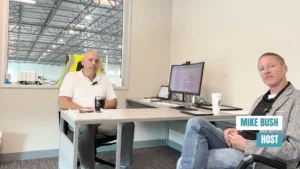CLIMATE CONTROL SOLUTIONS FOR THIRD-PARTY LOGISTICS COMPANIES
Third-party logistics companies (3PLs) are responsible for storing and transporting a variety of goods. Maintaining a proper climate for such a wide array of goods can be a serious challenge. Many items must be kept cold or frozen to prevent waste or loss. Polygon has not only the technology, but the team knowledge and expertise necessary to customize solutions, ensuring proper climate control for 3PLs.
Third-party logistics companies (3PLs) are responsible for storing and transporting a variety of goods. Maintaining a proper climate for such a wide array of goods can be a serious challenge. Many items must be kept cold or frozen to prevent waste or loss. Polygon has not only the technology, but the team knowledge and expertise necessary to customize solutions, ensuring proper climate control for 3PLs.
Climate Control Critical for 3PLs
The role of a 3PL through the supply chain process includes warehousing as well as the actual transportation of goods, translating to many concerns relating to climate control during the logistics company’s possession. Further, climate-controlled inventory has experienced fluctuating temperature and humidity swings by the time it reaches the 3PL. With varying and specific temperature requirements that must be met, 3PLs must be prepared to ensure the proper climate for each product load. And, it’s not just perishable foods that require climate control.
Electrical goods require humidity management to avoid damage to internal components. Another climate-sensitive product, pharmaceuticals, requires storage temperatures that range between 2-8 degrees Celsius. A variation as minimal as just a few degrees up or down can radically modify a medicine’s chemical structure, altering its potency and effect, sometimes with negative outcomes.
A critical part of their supply chain, manufacturers depend on 3PLs to meet their products’ climate control needs. Ideal conditions vary greatly depending on the goods, and 3PLs need to be flexible to ensure items are delivered in optimal condition.
Extreme Outside Temperatures Impact Also Play a Role
What’s going on outside has a significant impact on climate control inside, so today’s 3PLs must account for external factors as well. From temperatures in the frigid single digits or those soaring into triple digits, extreme weather can wreak havoc on internal climate control. However, temperature is not the only issue. Relative humidity must be kept within specific ranges to prevent moisture that can lead to spoilage or harm to the goods.
How to Ensure Sites Are Equipped to Meet Climate Control Needs
A building’s construction, airflow dynamics, ventilation, and the impact of outside temperatures and humidity all have an effect on a 3PL’s ability to secure products during their essential role between product origination and destination. To ensure unparalleled climate control of goods while guaranteeing client and end-consumer satisfaction, 3PLs need the right equipment, creatively designed and supported by a team of experts dedicated to maximizing supply chain climate stability.
To manage differing product storage variables, a system that offers continuous climate measurement and tracking from Polygon is the turnkey, cost-effective, and timely solution for 3PLs. Not only do Polygon solutions manage moisture, control temperatures, and filter air with real-time monitoring, new innovations in temporary dehumidification equipment meet green goals while reducing operating costs.
Polygon is the undisputed expert in climate control for 3PLs. Polygon’s combination of people, knowledge, and technology makes them the ideal partner in keeping products at required temperatures through the supply chain process, Learn more about Polygon’s climate control solutions for 3PLs.
Read more at polygongroup.com









